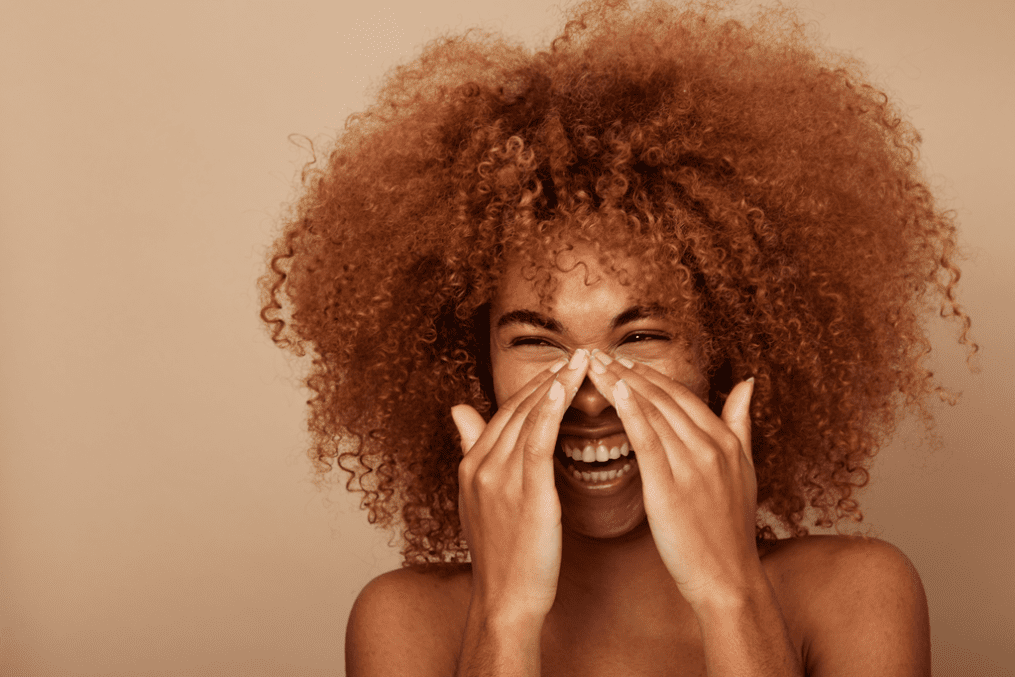Does your hair need an anti-pollution solution?

Air pollution – it’s not exactly a promising story. Millions of us are breathing illegal levels of the stuff, and it’s predicted that by 2030, 92.9% of Brits will be living in an urban area. As a result, pollution-proofing skincare is popping up in bathrooms across the UK, while SPF is slathered all-the-more liberally across our increasingly sensitive complexions. But what about anti-pollution haircare? Before you splurge on every vitamin C-enriched shampoo going, it pays to understand how particulate matter (that’s diesel fumes, soot, smoke and metallic elements like lead, arsenic and mercury) interacts with our hair.
An inside job
‘We know pollutants have a detrimental effect on people’s health,’ says Consultant Trichologist Iain Sallis. ‘That can filter into every path of your body, from your heart to your hair. But the hair was actually designed to mop up pollutants from the body. One of the primary roles of melanocytes – they’re what make your hair coloured – is to extract toxins from the blood that can’t be urinated or defecated out. So things like heavy metals tend to get excreted via the hair fibre rather than the kidneys or the liver, which can’t break these things down. The hair is actually very capable of getting rid of these things from our body – it’s our third excretory system.’
Don’t get duped
But that’s not to say anti-pollution haircare isn’t on the rise – analysts at market research firm Mintel placed anti-pollution front and centre in their recent hair ingredient forecast, citing botanical extracts and anti-inflammatory turmeric as key additions to protective formulas. For the most part, says Sallis, the credentials around anti-pollution haircare products are ‘a very interesting marketing tool,’ based more around the aesthetic effects of pollution than any real damage.
Commonly wheeled out as justification for anti-pollution haircare products is the notion that when exposed to pollution, skin, including the scalp, experiences a higher sebum secretion rate. ‘It’s certainly a possibility, but there’s currently no science to back that up,’ says Sallis. ‘And if that’s the case, that’s no bad thing. Sebum is good for the hair, it’s your natural conditioner. You may not like the way it looks, but having more of it would have no detrimental effect on hair health.’
Clean up your act
The good news (if you want to call it that) is that it’s only the look and feel of your hair that’s likely to be affected. ‘Your hair is a dead fibre, so it’s more like a piece of clothing than a body part,’ says Sallis. ‘Pollution can make it dull, lank and lifeless, and a bit smelly.’ Anabel Kingsley, trichologist at Philip Kingsley, agrees: ‘Pollution can make hair look dull and lacklustre, and feel coated and heavy,’ she says. ‘The dust, dirt and daily grime affects the hair and scalp in a similar way to the skin on our face.’ It might sound like the effects of pollution are the same as having dirty hair under any guise, but there are specialist measures you can take – see below:
5 steps to pollution-free hair
1 Shake up your shampoo ‘If your hair is dull and lifeless, you need to change your shampoo,’ says Sallis. ‘Try a volumising formula, or one with chelating agents every other wash. Chelating agents bind to certain alkaloids and metals, and pull them off the hair – you’ll often find them in swimming shampoos, as they get rid of chlorinated salts.’ Kingsley recommends washing daily – in which case, use a mild shampoo, says Sallis. ‘Anything too strong will make hair feel stripped and dry at the ends, so use something you can use daily, and a light conditioner if you can. It will depend on your hair type – afro hair doesn’t tend to enjoy being washed, and might take more kindly to oils.’
2 Strength and conditioning ‘Porous hair is more likely to become stained by environmental pollution, such as smoke fumes, especially if it is blonde or grey,’ says Kingsley. ‘To reduce porosity, increase shine and seal the outer hair cuticle, use a weekly pre-shampoo conditioning treatment.’
3 See to your scalp ‘Pollution, dust, dirt and daily grime can increase the likelihood of scalp problems, such as flaking and itching,’ says Kingsley – and pollution may also exacerbate inflammatory scalp problems associated with hair loss. ‘I suggest using a weekly exfoliating scalp mask to help remove dead skin cells and improve suppleness.’ Combine Himalayan salt and coconut oil for a DIY version.
4 Be practical ‘The only way to really protect hair is by occluding it, says Sallis. ‘So wear a hat, or tie it up to shield it from pollutants.’
5 Look at your lifestyle ‘Changes to diet and lifestyle will not protect your hair and scalp from external environmental pollution. But looking after yourself, eating well and managing stress levels will help to keep your hair and scalp in their best shape possible – and this in turn can make them more resilient to daily assaults,’ says Kingsley. Sallis agrees, and recommends supplements if you have any dietary deficiencies. ‘You could also equate smoking with being in a polluted environment,’ he adds. ‘Smoking acts as a vasoconstrictor, so is harmful to hair over time.’







